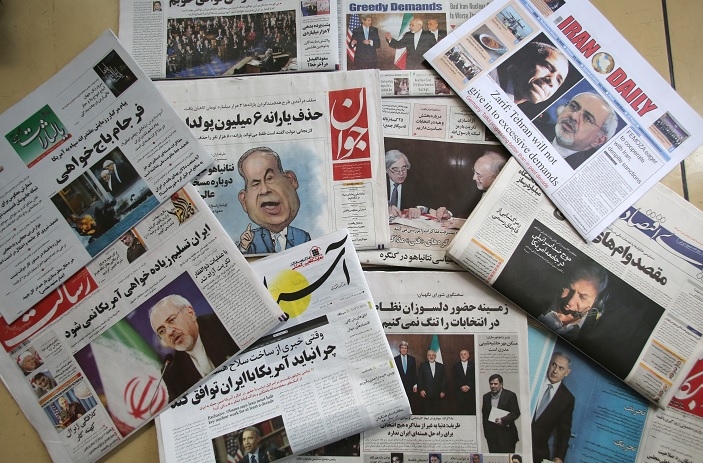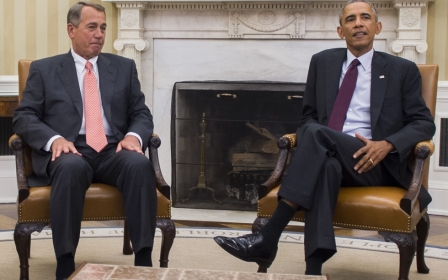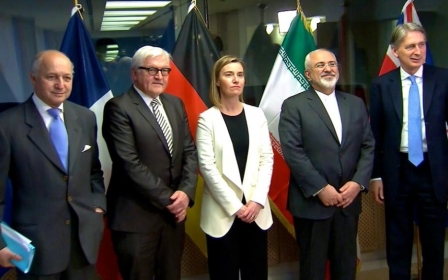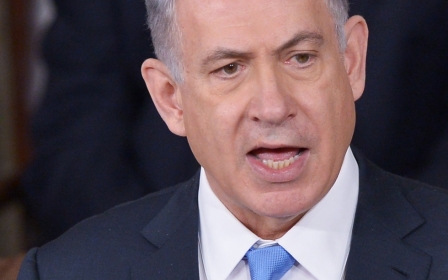Mixed Middle East reactions to Iran's nuclear accord

Saudi Arabia said on Friday that it hoped a final nuclear deal between world powers and Iran would lead to the strengthening of the region's stability and security.
"The Custodian of the Two Holy Mosques [King Salman] expressed his hope that reaching a final binding deal would strengthen the stability and security of the region and the world," Saudi Press Agency said early on Friday.
King Salman has reportedly expressed this sentiment during a phone call with US President Barack Obama in a telephone call on Thursday.
Iran and the so-called P5+1 states (Britain, China, France, Germany, Russia and the US) reached a framework agreement on Thursday, whereby Tehran would curb its nuclear programme for at least a decade in exchange of a gradual lifting of Western sanctions.
Saudi Arabia had publicly backed the nuclear talks in 2013 on condition that they would not lead to Iran acquiring nuclear weapons. Tehran has always insisted that its programme is civilian and does not aim to produce the atomic bomb.
But privately Riyadh also fears that a deal with Tehran would give Iran greater powers to support its perceived proxies across the region.
This view is shared by most other Arab Gulf states.
"There's a nuclear Iran being dealt with by this deal, but what’s much more worrying is the sectarian Iran and expansionist Iran. That’s 10 times more dangerous," Abdulkhaleq Abdulla, a retired political-science professor in the UAE who is familiar with the Emirati government's thinking, told the Wall Street Journal.
However, Oman, which enjoys good relations with Iran, welcomed the "historic" agreement, expecting a "a new era for more regional and international security and stability".
Meanwhile, Turkey on Friday also welcomed the framework deal in Switzerland, hoping that the agreement would be finalised by July.
"We are very happy that this deal was made yesterday," Turkey's Foreign Minister Mevlut Cavusoglu said.
"When we look at the positions of the P5+1 and Iran right now, Iran is still beyond the line we were able to bring in 2010, but I hope Iran will come to the same line by the end of June," Cavusoglu added.
"Turkey is in principle against any kind of nuclear weapons in Iran, in Israel or in any other countries," Cavusoglu said.
Israel, on the other hand, warned on Friday that the framework accord was "very dangerous," reiterating its accusation that Tehran is seeking to develop nuclear weapons through this deal.
"This framework (agreement) is a step in a very, very dangerous direction," Israeli government spokesman Mark Regev said.
"Not only does it leave Iran with an expensive nuclear infrastructure but it fails to shut down even a single Iranian nuclear installation. It leaves Iran with thousands of centrifuges to continue to enrich uranium," Regev said.
"It allows Iran to conduct research and development to build new and better centrifuges," he added.
Israel is the only country in the Middle East which is known to have nuclear weapons.
Inside Iran, where many are celebrating the news of the accord, it remains unclear how the agreement will influence the reestablishment of ties with the US.
"I do not believe that the establishment in Iran wants normal ties with the United States," Alireza Nader, senior international policy analyst at the RAND Corporation, told AFP.
"Perhaps President Rouhani and his government want diplomatic relations, but the Supreme Leader and his supporters view it as being against their interests."
New MEE newsletter: Jerusalem Dispatch
Sign up to get the latest insights and analysis on Israel-Palestine, alongside Turkey Unpacked and other MEE newsletters
Middle East Eye delivers independent and unrivalled coverage and analysis of the Middle East, North Africa and beyond. To learn more about republishing this content and the associated fees, please fill out this form. More about MEE can be found here.




